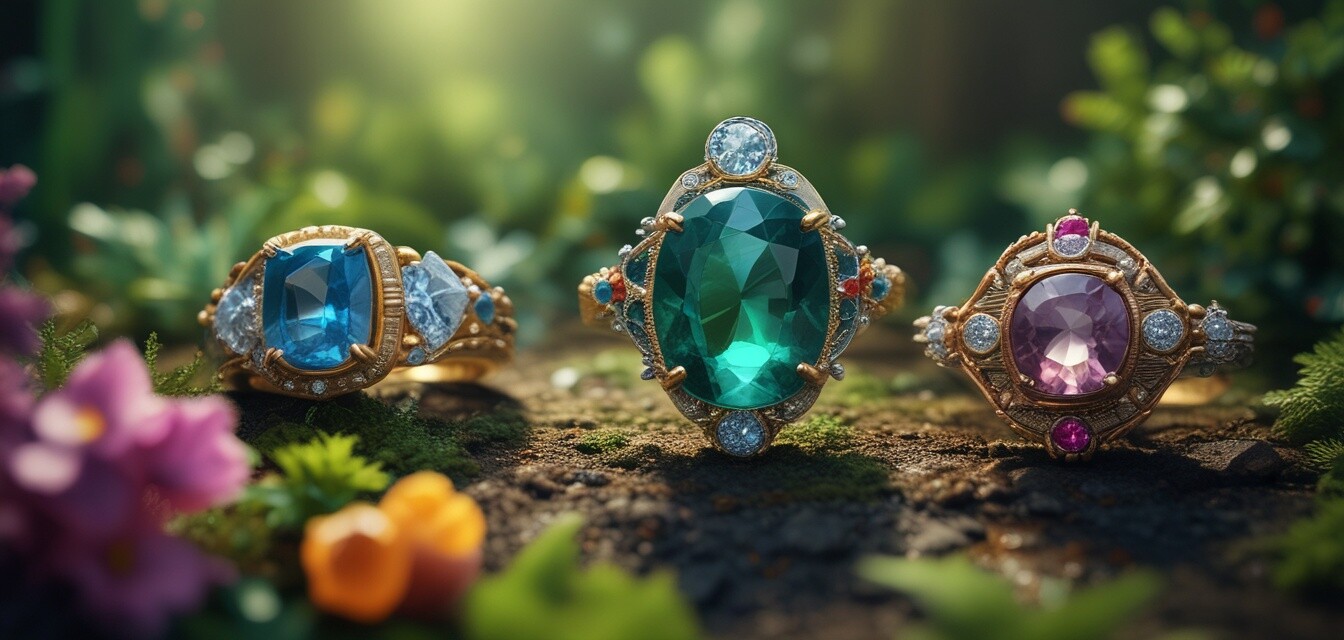
The Connection Between Ethical Jewelry and Sustainability Education
Key Takeaways
- Ethical jewelry brands prioritize sustainable practices.
- Transparency in sourcing is crucial for consumer trust.
- Sustainability education enhances awareness of ethical choices.
- Artisans play a significant role in eco-friendly production.
- Supporting ethical brands contributes to community and environmental well-being.
As consumers increasingly seek out products that align with their values, the connection between ethical jewelry and sustainability education has come into sharp focus. Ethical jewelry brands not only provide stunning pieces but also play a pivotal role in educating the public about sustainable practices. This article will explore how these brands contribute to sustainability education and raise awareness of positive environmental impact.
The role of ethical jewelry brands in sustainability education
Ethical jewelry brands are at the forefront of the movement toward more sustainable practices. They emphasize several key aspects:
| Aspect | Description |
|---|---|
| Ethical Sourcing | Obtaining gemstones and materials from responsible and sustainable sources. |
| Fair Trade Practices | Ensuring that artisans and workers are compensated fairly for their work. |
| Eco-Friendly Materials | Using recycled or environmentally-friendly materials in production. |
| Community Development | Investing in local communities to enhance their sustainability efforts. |
Ethical sourcing and its importance
One of the most significant aspects of ethical jewelry is the sourcing of materials. Ethical jewelry brands actively seek out suppliers who adhere to strict environmental and social standards. This commitment leads to:
- Reduced environmental impact by avoiding destructive mining practices.
- Preservation of local ecosystems and biodiversity.
- Support for fair labor practices and decent wages for workers.
Educating consumers about sustainable choices
Transparency is key in creating informed consumers. Ethical jewelry brands often take several steps to educate their customers:
- Storytelling: Many brands share the stories of the artisans and communities behind their products, giving consumers a personal connection to their purchases.
- Informational Resources: Websites often contain sections dedicated to educating consumers about sustainability, including the impacts of conventional jewelry production.
- Workshops and Events: Participating in local events helps spread awareness and educate the public about sustainability in the jewelry industry.
Impact on purchasing decisions
According to a study, 66% of consumers are willing to pay more for sustainable brands. This statistic reflects the growing demand for **eco-friendly jewelry** options and the need for consumers to make responsible choices. Check our buying guides for more on how to choose ethically sourced products.
The role of artisans in the sustainability movement
Artisans are an integral part of the ethical jewelry supply chain. They not only produce beautiful pieces but also embody sustainable practices through their work. Here’s how:
| Artisan Role | Contribution |
|---|---|
| Craftsmanship | Using traditional methods that minimize environmental impact. |
| Community Engagement | Working with local communities to promote and preserve cultural heritage. |
| Innovative Techniques | Developing new methods to reduce waste and increase resource efficiency. |
Highlighting sustainable practices in the jewelry industry
Ethical jewelry brands often obtain certifications that endorse their sustainable practices. Some notable certifications include:
- Fair Trade Certified: Ensures fair wages and ethical treatment of workers.
- Global Organic Textile Standard (GOTS): Validates the processing of organic materials.
- Responsible Jewellery Council (RJC): Focuses on promoting responsible ethical practices in the jewelry supply chain.
These certifications not only provide credibility but also encourage brands to maintain high standards in sustainability.
Benefits of supporting ethical jewelry brands
Choosing to support ethical jewelry brands brings several advantages:
- Empowerment: Artisans and communities benefit from fair wages and ethical practices.
- Environmental Protection: Sustainable practices contribute to a healthier planet.
- Cultural Preservation: Supporting artisan techniques helps preserve unique cultural traditions.
Pros
- High-quality craftsmanship and unique designs.
- Positive impact on communities and the environment.
- Transparency about sourcing and production processes.
Cons
- Typically higher price point.
- Limited availability compared to mass-produced items.
Conclusion
Ethical jewelry brands are not merely purveyors of beautiful pieces, but educators leading the charge toward sustainable practices. By emphasizing ethical sourcing, fair trade, and community involvement, they pave the way for consumers to make informed choices. Embracing these sustainable practices is not just a trend, but a vital part of creating a better future for our planet and its people. Learn more about the ethics of jewelry in our Sustainability Practices section, where we discuss various facets of sustainable jewelry.